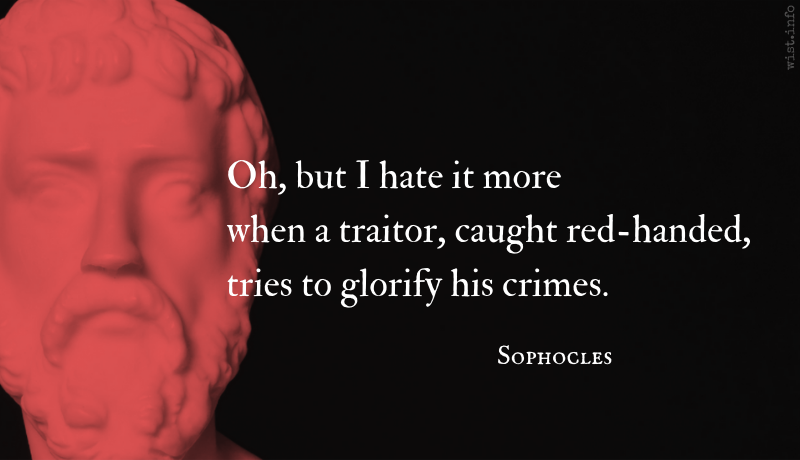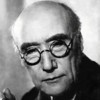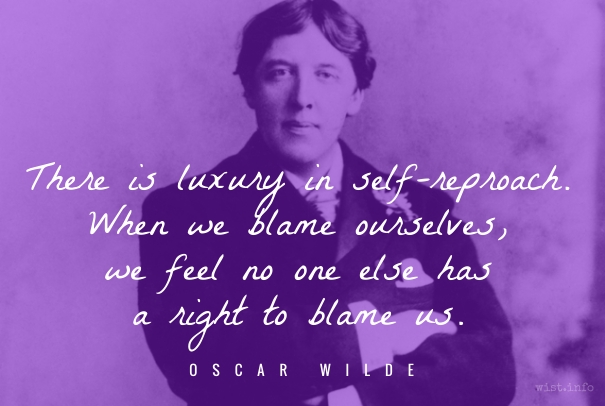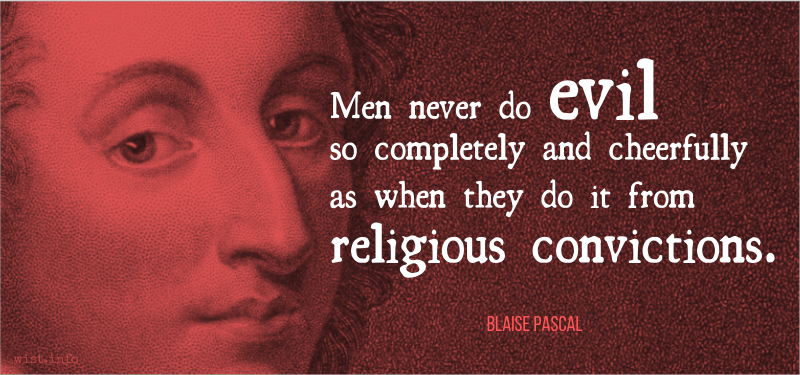God bears with imperfect beings, even when they resist his goodness. We ought to imitate this merciful patience and endurance. It is only imperfection that complains of what is imperfect. The more perfect we are the more gentle and quiet we become towards the defects of others.
François Fénelon (1651-1715) French Catholic archbishop, theologian, poet, writer [François de Salignac de la Mothe-Fénelon]
Letter (1710-10-11) to Duchess de Montemart
(Source)
Sometimes misattributed to Joseph Addison.
This is a shortened version, from Selections from the Writings of Fénelon, Letter 37 [tr. Follen (1829)], of a passage given in Fénelon's Letters to Women, Letter 116 [tr. Lear (1921)] as:Sometimes even it is necessary to imitate God's dealings with souls, Who often so softens His rebuke that the person rebuked feels rather as though he were accusing himself than being accused. Anything like impatient reproof from being shocked at great faults becomes a very human correction, not that of grace.Our own imperfection makes us hasty to rebuke the imperfect, and it is a very subtle and ll-permeating self-love which cannot forgive the self-love of others. The stronger it is, the more critical the censor will be: there is nothing so irritating to a proud, self-willed mind, as the self-will of a neighbor; and another man's passions seem intolerably ridiculous and unbearable to one who is given up to his own. But he who is full oft he love of God, on the contrary, is full of forbearance, consideration, and indulgence. He waits and adapts himself, and goes softly, one step at a time: the less self-love he has, the more he tolerates that of others in order to heal it.
Quotations about:
self-righteousness
Note not all quotations have been tagged, so Search may find additional quotes on this topic.
Even the acquisition of knowledge is often much facilitated by the advantages of society: he that never compares his notions with those of others, readily acquiesces in his first thoughts, and very seldom discovers the objections which may be raised against his opinions; he, therefore, often thinks himself in possession of truth, when he is only fondling an errour long since exploded. He that has neither companions nor rivals in his studies, will always applaud his own progress, and think highly of his performances, because he knows not that others have equalled or excelled him. And I am afraid it may be added, that the student who withdraws himself from the world, will soon feel that ardour extinguished which praise or emulation had enkindled, and take the advantage of secrecy to sleep, rather than to labour.
Samuel Johnson (1709-1784) English writer, lexicographer, critic
Essay (1754-01-19), The Adventurer, No. 126
(Source)
It is generally pride rather than lack of intelligence which prompts men to dispute so obstinately generally accepted opinions; they find all the front seats taken on the popular side, and do not wish to sit behind.
[C’est plus souvent par orgueil que par défaut de lumières qu’on s’oppose avec tant d’opiniâtreté aux opinions les plus suivies: on trouve les premières places prises dans le bon parti, et on ne veut point des dernières.]
François VI, duc de La Rochefoucauld (1613-1680) French epigrammatist, memoirist, noble
Réflexions ou sentences et maximes morales [Reflections; or Sentences and Moral Maxims], ¶234 (1665-1678) [tr. Stevens (1939)]
(Source)
This passage first appeared in the 5th (1678) edition. Earlier English translations do not include it.
See also Gracián (1647).
In the manuscript version, "C'est ... d’opiniâtreté" is given as: "C’est par orgueil qu’on s’oppose avec tant d’opiniâtreté … [It is out of pride that they oppose with such stubbornness ...]," removing the comment about lack of understanding / intelligence.
(Source (French)). Other translations:It is more often from pride than from want of intelligence that people oppose with so much obstinacy; the most received opinions. They find the best places taken up in the good party, and do not like to put up with inferior ones.
[ed. Gowens (1851), ¶380]It is more often from pride than from ignorance that we are so obstinately opposed to current opinions; we find the first places taken, and we do not want to be the last.
[tr. Bund/Friswell (1871), ¶234]It is more often our pride than our limited understanding which makes us fly so violently in the face of public opinion. We find the best seats on the correct side already occupied, and we do not care to sit in the rear.
[tr. Heard (1917), ¶377]Pride, rather than a lack of perspicacity, is what usually drives us to oppose with such obstinacy opinions that are generally accepted as correct: though theirs may be the better party, the front benches are already filled, and we certainly do not want to take a back seat.
[tr. FitzGibbon (1957), ¶234]It is oftener through pride than through lack of understanding that we so militantly object to prevailing opinions; we find the front seats already in other hands, and we do not want rear ones.
[tr. Kronenberger (1959), ¶234]Those who obstinately oppose the most widely-held opinions more often do so because of pride than lack of intelligence. They find the best places in the right set already taken, and they do not want back seats.
[tr. Tancock (1959), ¶234]It is more often from pride than from ignorance that we so stubbornly oppose ourselves to the most current opinions: we find the first seats already taken on the better side, and do not wish to sit down there last.
[tr. Whichello (2016) ¶234]
SGANARELLE: Have you no fears about returning here? It was here, Sir, that you killed that Commander, six months ago.
DON JUAN: Why should I be afraid? Didn’t I kill him properly?
[SGANARELLE: Et n’y craignez-vous rien, monsieur, de la mort de ce commandeur que vous tuâtes il y a six mois?
DON JUAN: Et pourquoi craindre? ne l’ai-je pas bien tué?]
Molière (1622-1673) French playwright, actor [stage name for Jean-Baptiste Poquelin]
Don Juan [Dom Juan], Act 1, sc. 2 (1665) [tr. Wilbur (2001)]
(Source)
(Source (French)). Other translations:SGANAREL: And are you under no Apprehensions, Sir, about the Death of the Governor you kill'd six Months ago?
D. JOHN: And why Apprehensions? did'nt I kill him fairly?
[tr. Clitandre (1672)]SGAN.: And you have no fear, sir, for the consequences of the death of that Commander whom you killed six months ago?
D. JU.: Why should I be afraid? Did I not kill him honourably?
[tr. Van Laun (1876)]SGAN.: And have you no fear, sir, abouit the death of that commandant you killed six months ago?
JU.: What fear can I have? Did I not kill him properly?
[tr. Wall (1879)]SGAN.: And have you no apprehensions, Monsieur, from the death of the Commander you killed six months ago?
D. JUAN: Why should I be afraid? Did I not kill him honourably?
[tr. Waller (1904)]SGANARELLE: And have you nothing to fear, sir, from the death of the Commandant whom you killed here six months ago?
DON JUAN: And what should I fear? Was n't he fairly killed?
[tr. Page (1908)]SGANARELLE: And have you nothing to fear, sir, here, from the death of that Commander you killed six months ago?
DON JUAN: And why fear? Didn I kill him properly?
[tr. Frame (1967)]
Official war propaganda, with its disgusting hypocrisy and self-righteousness, always tends to make thinking people sympathize with the enemy.
George Orwell (1903-1950) English journalist, essayist, writer [pseud. of Eric Arthur Blair]
Essay (1942-08), “Looking Back on the Spanish War, ch. 2, New Road (1943-06)
(Source)
It is, indeed, a trial to maintain the virtue of humility when one can’t help being right.
Judith Martin (b. 1938) American author, journalist, etiquette expert [a.k.a. Miss Manners]
“Miss Manners,” syndicated column (1999-02-02)
(Source)
In the meantime the older son was out in the field. On his way back, when he came close to the house, he heard the music and dancing. So he called one of the servants and asked him, “What’s going on?”
“Your brother has come back home,” the servant answered, ‘and your father has killed the prize calf, because he got him back safe and sound.”
The older brother was so angry that he would not go into the house; so his father came out and begged him to come in. But he spoke back to his father, “Look, all these years I have worked for you like a slave, and I have never disobeyed your orders. What have you given me? Not even a goat for me to have a feast with my friends! But this son of yours wasted all your property on prostitutes, and when he comes back home, you kill the prize calf for him!”
“My son,” the father answered, “you are always here with me, and everything I have is yours. But we had to celebrate and be happy, because your brother was dead, but now he is alive; he was lost, but now he has been found.”[Ἦν δὲ ὁ υἱὸς αὐτοῦ ὁ πρεσβύτερος ἐν ἀγρῷ· καὶ ὡς ἐρχόμενος ἤγγισεν τῇ οἰκίᾳ, ἤκουσεν συμφωνίας καὶ χορῶν, καὶ προσκαλεσάμενος ἕνα τῶν παίδων ἐπυνθάνετο τί ἂν εἴη ταῦτα.
ὁ δὲ εἶπεν αὐτῷ ὅτι Ὁ ἀδελφός σου ἥκει, καὶ ἔθυσεν ὁ πατήρ σου τὸν μόσχον τὸν σιτευτόν, ὅτι ὑγιαίνοντα αὐτὸν ἀπέλαβεν.
ὠργίσθη δὲ καὶ οὐκ ἤθελεν εἰσελθεῖν, ὁ δὲ πατὴρ αὐτοῦ ἐξελθὼν παρεκάλει αὐτόν. ὁ δὲ ἀποκριθεὶς εἶπεν τῷ πατρὶ αὐτοῦ, Ἰδοὺ τοσαῦτα ἔτη δουλεύω σοι καὶ οὐδέποτε ἐντολήν σου παρῆλθον, καὶ ἐμοὶ οὐδέποτε ἔδωκας ἔριφον ἵνα μετὰ τῶν φίλων μου εὐφρανθῶ· ὅτε δὲ ὁ υἱός σου οὗτος ὁ καταφαγών σου τὸν βίον μετὰ πορνῶν ἦλθεν, ἔθυσας αὐτῷ τὸν σιτευτὸν μόσχον.
ὁ δὲ εἶπεν αὐτῷ, Τέκνον, σὺ πάντοτε μετ᾽ ἐμοῦ εἶ, καὶ πάντα τὰ ἐμὰ σά ἐστιν· εὐφρανθῆναι δὲ καὶ χαρῆναι ἔδει, ὅτι ὁ ἀδελφός σου οὗτος νεκρὸς ἦν καὶ ἔζησεν, καὶ ἀπολωλὼς καὶ εὑρέθη.]The Bible (The New Testament) (AD 1st - 2nd C) Christian sacred scripture
Luke 15: 25-32, “Parable of the Prodigal Son” (Jesus) [GNT (1992 ed.)]
(Source)
No Synoptic parallels. The conclusion of the Parable of the Prodigal Son, which appears only in Luke.
See Luke 15:7. Also see Lewis (1955) and Ciardi (1972).
(Source (Greek)). Alternate translations:Now his elder son was in the field: and as he came and drew nigh to the house, he heard musick and dancing. And he called one of the servants, and asked what these things meant.
And he said unto him, Thy brother is come; and thy father hath killed the fatted calf, because he hath received him safe and sound.
And he was angry, and would not go in: therefore came his father out, and intreated him. And he answering said to his father, Lo, these many years do I serve thee, neither transgressed I at any time thy commandment: and yet thou never gavest me a kid, that I might make merry with my friends: but as soon as this thy son was come, which hath devoured thy living with harlots, thou hast killed for him the fatted calf.
And he said unto him, Son, thou art ever with me, and all that I have is thine. It was meet that we should make merry, and be glad: for this thy brother was dead, and is alive again; and was lost, and is found.
[KJV (1611)]Now the elder son was out in the fields, and on his way back, as he drew near the house, he could hear music and dancing. Calling one of the servants he asked what it was all about.
"Your brother has come" replied the servant "and your father has killed the calf we had fattened because he has got him back safe and sound."
He was angry then and refused to go in, and his father came out to plead with him; but he answered his father, "Look, all these years I have slaved for you and never once disobeyed your orders, yet you never offered me so much as a kid for me to celebrate with my friends. But, for this son of yours, when he comes back after swallowing up your property -- he and his women -- you kill the calf we had been fattening."
The father said, "My son, you are with me always and all I have is yours. But it was only right we should celebrate and rejoice, because your brother here was dead and has come to life; he was lost and is found."
[JB (1966)]Now the elder son was out in the fields, and on his way back, as he drew near the house, he could hear music and dancing. Calling one of the servants he asked what it was all about.
The servant told him, "Your brother has come, and your father has killed the calf we had been fattening because he has got him back safe and sound."
He was angry then and refused to go in, and his father came out and began to urge him to come in; but he retorted to his father, "All these years I have slaved for you and never once disobeyed any orders of yours, yet you never offered me so much as a kid for me to celebrate with my friends. But, for this son of yours, when he comes back after swallowing up your property -- he and his loose women -- you kill the calf we had been fattening."
The father said, "My son, you are with me always and all I have is yours. But it was only right we should celebrate and rejoice, because your brother here was dead and has come to life; he was lost and is found."
[NJB (1985)]Now his older son was in the field. Coming in from the field, he approached the house and heard music and dancing. He called one of the servants and asked what was going on.
The servant replied, "Your brother has arrived, and your father has slaughtered the fattened calf because he received his son back safe and sound."
Then the older son was furious and didn’t want to enter in, but his father came out and begged him. He answered his father, "Look, I’ve served you all these years, and I never disobeyed your instruction. Yet you’ve never given me as much as a young goat so I could celebrate with my friends. But when this son of yours returned, after gobbling up your estate on prostitutes, you slaughtered the fattened calf for him."
Then his father said, "Son, you are always with me, and everything I have is yours. But we had to celebrate and be glad because this brother of yours was dead and is alive. He was lost and is found."
[CEB (2011)]Now his elder son was in the field, and as he came and approached the house, he heard music and dancing. He called one of the slaves and asked what was going on.
He replied, "Your brother has come, and your father has killed the fatted calf because he has got him back safe and sound."
Then he became angry and refused to go in. His father came out and began to plead with him. But he answered his father, "Listen! For all these years I have been working like a slave for you, and I have never disobeyed your command, yet you have never given me even a young goat so that I might celebrate with my friends. But when this son of yours came back, who has devoured your assets with prostitutes, you killed the fatted calf for him!"
Then the father said to him, "Son, you are always with me, and all that is mine is yours. But we had to celebrate and rejoice, because this brother of yours was dead and has come to life; he was lost and has been found."
[NRSV (2021 ed.)]
Undying hope is co-ruler of the human bosom with infallible credulity. A man finds he has been wrong at every preceding stage of his career, only to deduce the astonishing conclusion that he is at last entirely right.
Solemnity is the fool’s shield and buckler.
[La gravité est la bouclier des sots.]
Charles-Lewis de Secondat, Baron de Montesquieu (1689-1755) French political philosopher
Pensées Diverses [Assorted Thoughts], # 1637 / 1051 (1720-1755) [ed. Guterman (1963)]
(Source)
(Source (French), # 1051). Other translations:Gravity is the shield of fools.
[tr. Clark (2012), # 1637]Solemnity is the shield of idiots.
[E.g.]
We derive a certain satisfaction from being sinned against. It is not only that a grievance adds content to our lives, but also that it makes less monstrous the flame of malice which like a vigil light flickers in the dimness of our souls.
Eric Hoffer (1902-1983) American writer, philosopher, longshoreman
Passionate State of Mind, Aphorism 120 (1955)
(Source)
Whatever you think you have to do is simply what you want to do.
[Was Du zu müssen glaubst, ist das, was Du willst.]
Marie von Ebner-Eschenbach (1830-1916) Austrian writer
Aphorisms [Aphorismen], No. 60 (1880) [tr. Scrase/Mieder (1994)]
(Source)
(Source (German)). Alternate translation:What you wish to do you are apt to think you ought to do.
[tr. Wister (1883)]
There is no cruelty so inexorable and unrelenting, as that which proceeds from a bigoted and presumptuous supposition of doing service to God. Under the influence of such hallucination, all common modes of reasoning are perverted, and all general principles are destroyed.
Charles Caleb "C. C." Colton (1780-1832) English cleric, writer, aphorist
Lacon: Or, Many Things in Few Words, Vol. 1, § 222 (1820)
(Source)
Hate not Opinions for being contrary to thy own, nor be angry to see a Difference between thine and other Men’s Judgment. Thou art not bound to rectify all Men’s Mistakes. And it is not certain, but thou thy self mayst be in the wrong.
Thomas Fuller (1654-1734) English physician, preacher, aphorist, writer
Introductio ad Prudentiam, Vol. 1, # 1228 (1725)
(Source)
To make our idea of morality centre on forbidden acts is to defile the imagination and to introduce into our judgments of our fellow-men a secret element of gusto.
Robert Louis Stevenson (1850-1894) Scottish essayist, novelist, poet
Essay (1888-12), “A Christmas Sermon,” sec. 1, Scribner’s Magazine, Vol. 4
(Source)
Originally written in the winter of 1887-88. Collected in Across the Plains, ch. 12 (1892).
Fear of change is, no doubt, in all of us, but it most afflicts the man who fears that any change must lead to loss of his wealth and status. When this fear becomes inordinate, he will, if he has political power, abrogate such things as civil rights and the rule of law, using the argument that he abrogates them only to preserve them. In my own country, the government, in order to preserve Christian civilization, uses methods incompatible with Christianity and abrogates values which are essential to any civilization which calls itself Christian. If only a man would say, “I do this because I’m afraid,” one could bear it; but when he says, “I do this because I’m good,” that is a bit too much.
We do not make people humble and meek when we show them their guilt and cause them to be ashamed of themselves. We are more likely to stir their arrogance and rouse in them a reckless aggressiveness. Self-righteousness is a loud din raised to drown the voice of guilt within us. There is a guilty conscience behind every brazen word and act and behind every manifestation of self-righteousness.
Eric Hoffer (1902-1983) American writer, philosopher, longshoreman
True Believer: Thoughts on the Nature of Mass Movements, Part 3, ch. 14, § 69 (1951)
(Source)
It is always easy as well as agreeable for the inferior ranks of mankind to claim merit from the contempt of that pomp and pleasure which fortune has placed beyond their reach. The virtue of the primitive Christians, like that of the first Romans, was very frequently guarded by poverty and ignorance.
Edward Gibbon (1737-1794) English historian
The Decline And Fall of the Roman Empire, Vol. 2, ch. 15 (1781)
(Source)
See La Rochefoucauld.
EVANGELIST, n. A bearer of good tidings, particularly (in a religious sense) such as assure us of our own salvation, and the damnation of our neighbors.
Ambrose Bierce (1842-1914?) American writer and journalist
“Evangelist,” The Cynic’s Word Book (1906)
(Source)
Included in The Devil's Dictionary (1911). Originally published in the "Devil's Dictionary" column in the San Francisco Wasp (1884-05-24).
The original entry in the Wasp concluded: “The evangelists proper are Matthew, Mark, Luke and John; the evangelists improper are the parsons."
Fear comes from uncertainty. When we are absolutely certain, whether of our worth or worthlessness, we are almost impervious to fear. Thus a feeling of utter unworthiness can be a source of courage.
Eric Hoffer (1902-1983) American writer, philosopher, longshoreman
Passionate State of Mind, Aphorism 87 (1955)
(Source)
Pride plays a greater part than kindness in our censure of a neighbor’s faults. We criticize faults less to correct them, than to prove that we do not possess them.
[L’orgueil a plus de part que la bonté aux remontrances que nous faisons à ceux qui commettent des fautes; et nous ne les reprenons pas tant pour les en corriger que pour leur persuader que nous en sommes exempts.]
François VI, duc de La Rochefoucauld (1613-1680) French epigrammatist, memoirist, noble
Réflexions ou sentences et maximes morales [Reflections; or Sentences and Moral Maxims], ¶37 (1665-1678) [tr. Heard (1917)]
(Source)
Present from the first edition. (Source (French)). Alternate translations:We are liberal of our remonstrances and reprehensions towards those, whom we think guilty of miscarriages; but we therein betray more pride, than charity. Our reproving them does not so much proceed from any desire in us of their reformation, as from an insinuation that we our selves are not chargeable with the like faults.
[tr. Davies (1669), ¶142]Pride hath a greater share than Goodness in the reproofs we give other people for their faults; and we chide them, not so much with a design to mend them, as to make them believe that we ourselves are not guilty of them.
[tr. Stanhope (1694), ¶38]Pride is more concerned than benevolence in our remonstrances to persons guilty of faults; and we reprove them not so much with a design to correct, as to make them believe that we ourselves are free from such failings.
[pub. Donaldson (1783), ¶349; ed. Lepoittevin-Lacroix (1797), ¶37]In our reprehensions, pride has a greater share than good nature. We reprove, not so much in order to correct, as to intimate that we hold ourselves free from such failings.
[ed. Carville (1835), ¶309]Pride has a greater share than goodness of heart in the remonstrances we make to those who are guilty of faults; we reprove not so much with a view to correct them as to persuade them that we are exempt from those faults ourselves.
[ed. Gowens (1851), ¶38]Pride has a larger part than goodness in our remonstrances with those who commit faults, and we reprove them not so much to correct as to persuade them that we ourselves are free from faults.
[tr. Bund/Friswell (1871), ¶37]Pride, rather than virtue, makes us reprove those who have done wrong; our reproaches are not so much intended to improve the evil-doer, as to show him that we are quite free of his taint.
[tr. FitzGibbon (1957), ¶37]Pride plays a greater part than kindness in our remonstrating with those who make mistakes; and we point out their faults, less to correct them than to indicate they are not ours.
[tr. Kronenberger (1959), ¶37]Pride plays a greater part than kindness in the reprimands we address to wrongdoers; we reprove them not so much to reform them as to make them believe that we are free from their faults.
[tr. Tancock (1959), ¶37]Pride shares a greater part than the goodness of our hearts in the reprimands we give to those who commit faults; and we do not reprove so much in order to correct them, as in order to persuade them that we are ourselves exempt from those faults.
[tr. Whichello (2016), ¶37]
But we are so blind to our own shortcomings, so wide awake to those of others. Everything that happens to us is always the other person’s fault. Angelina would have gone on loving Edwin forever and ever and ever if only Edwin had not grown so strange and different. Edwin would have adored Angelina through eternity if Angelina had only remained the same as when he first adored her.
It is a cheerless hour for you both when the lamp of love has gone out and the fire of affection is not yet lit, and you have to grope about in the cold, raw dawn of life to kindle it. God grant it catches light before the day is too far spent. Many sit shivering by the dead coals till night come.Jerome K. Jerome (1859-1927) English writer, humorist [Jerome Klapka Jerome]
Idle Thoughts of an Idle Fellow, “On Being In Love” (1886)
(Source)
I don’t like people who have never fallen or stumbled. Their virtue is lifeless and of little value. Life hasn’t revealed its beauty to them.
Boris Pasternak (1890-1960) Russian poet, novelist, and literary translator
Doctor Zhivago [До́ктор Жива́го], Part 2, ch. 13 “Opposite the House of Sculptures,” sec. 12 [Yury] (1955) [tr. Hayward & Harari (1958), US ed.]
(Source)
Alternate translations:I don't like people who have never fallen or stumbled. Their virtue is lifeless and it isn't of much value. Life hasn't revealed its beauty to them.
[tr. Hayward & Harari (1958), UK ed., "Opposite the House of the Caryatids"]I don't like the righteous ones, who never fell, never stumbled. Their virtue is dead and of little value. The beauty of life has not been revealed to them.
[tr. Pevear & Volokhonsky (2010), "Opposite the House with Figures"]
So let’s be honest with ourselves and not take ourselves too serious, and never condemn the other fellow for doing what we are doing every day, only in a different way.
Will Rogers (1879-1935) American humorist
Article (1926-07-31), “Letter of a Self-Made Diplomat to His President,” Saturday Evening Post
(Source)
Collected in Letters of a Self-Made Diplomat to His President (1926).
Didn’t Woody Allen say that all literature was a footnote to Faust? Perhaps all adolescence is a dialogue between Faust and Christ. We tremble on the brink of selling that part of ourselves that is real, unique, angry, defiant and whole for the rewards of attainment, achievement, success and the golden prizes of integration and acceptance; but we also in our great creating imagination, rehearse the sacrifice we will make: the pain and terror we will take from others’ shoulders; our penetration into the lives and souls of our fellows; our submission to willingness to be rejected and despised for the sake of truth and love and, in the wilderness, our angry rebuttals of the hypocrisy, deception and compromise of a world which we see to be so false. There is nothing so self-righteous nor so right as an adolescent imagination.
Stephen Fry (b. 1957) British actor, writer, comedian
Moab Is My Washpot, “Falling In,” ch. 6 (1997)
(Source)
We alone are right-minded; everyone else is wrong.
[μόνοι γὰρ εὖ φρονοῦμεν, οἱ δ᾽ ἄλλοι κακῶς.]
Euripides (485?-406? BC) Greek tragic dramatist
Bacchæ [Βάκχαι], l. 196 [Teiresias/Τειρεσίας] (405 BC) [tr. Robinson (2014)]
(Source)
When asked by Cadmus about being the only men of Thebes attending the Bacchanal. (Source (Greek)). Alternate translation:Because ourselves alone
Are truly wise, but others judge amiss.
[tr. Wodhull (1809)]Yes, for we alone think rightly, the rest wrongly.
[tr. Buckley (1850)]All else misjudge; we only are the wise.
[tr. Milman (1865)]Alone: For we are wise, the rest are fools.
[tr. Rogers (1872), l. 179]Yea, for we alone are wise, the rest are mad.
[tr. Coleridge (1891)]Yea, we alone are wise; the rest be fools.
[tr. Way (1898)]Aye, Thebes is blinded. Thou and I can see.
[tr. Murray (1902)]They are all blind.
Only we can see.
[tr. Arrowsmith (1960)]Yes, for only we are sane -- the rest are mad.
[tr. Kirk (1970)]We are the only men right-minded; the rest are perverse.
[tr. Vellacott (1973)]We alone think well, the others ill.
[tr. Neuburg (1988)]The only ones with healthy minds. The rest are sick.
[tr. Cacoyannis (1982)]Only we think right. The others vilely.
[tr. Blessington (1993)]Yes, since only we reason well. The rest are fools!
[tr. Esposito (1998)]The only ones in our right minds. The rest are mad.
[tr. Woodruff (1999)]Yes, only we have any sense, the rest have none.
[tr. Gibbons/Segal (2000)]Yes, we alone have sense, the others none.
[tr. Kovacs (2002)]Yes, Kadmos because we are the only ones who can think straight. The rest of them? They are all wrong!
[tr. Theodoridis (2005)]We alone've got it right; the others, wrongly.
[tr. Valerie (2005)]Yes, indeed,
for we're the only ones whose minds are clear.
As for the others, well, their thinking's wrong.
[tr. Johnston (2008), l. 247ff]The rest are blind. Only we can see.
[tr. Robertson (2014)]We’re the only ones wise enough. The rest ... less so.
[tr. Pauly (2019)]Of course; no one else has enough sense.
[tr. Behr/Foster (2019)]We alone are sensible, all the others foolish.
[tr. Buckley/Sens/Nagy (2020)]
I have often wondered, that persons who make a boast of professing the Christian religion, namely, love, joy, peace, temperance, and charity to all men, should quarrel with such rancorous animosity, and display daily towards one another such bitter hatred, that this, rather than the virtues they claim, is the readiest criterion of their faith.
Baruch Spinoza (1632-1677) Dutch philosopher
Theological-Political Treatise [Tractatus Theologico-Politicus], Part 1, Preface, sec. 23 (1670)
(Source)
The seeds of evil usually germinated in the footprints of people who knew how everybody else ought to behave and felt the need to tell them so.
Of publishing a book on religion, my dear Sir, I never had an idea. I should as soon think of writing for the reformation of Bedlam, as of the world of religious sects. Of these there must be, at least, ten thousand, every individual of every one of which believes all wrong but his own. To undertake to bring them all right, would be like undertaking, single-handed, to fell the forests of America.
Thomas Jefferson (1743-1826) American political philosopher, polymath, statesman, US President (1801-09)
Letter (1815-01-29) to Charles Clay
(Source)
A maxim for the twenty-first century might well be to start not by fighting evil in the name of good, but by attacking the certainties of people who claim always to know where good and evil are to be found. We should struggle not against the devil himself but what allows the devil to live — Manichaean thinking itself.
Tzvetan Todorov (1939-2017) Bulgarian-French historian, philosopher, literary critic, sociologist
Hope and Memory: Reflections on the Twentieth Century, ch. 5 “The Past in the Present” (2003)
(Source)
Paraphrased variant:We should not be simply fighting evil in the name of good, but struggling against the certainties of people who claim always to know where good and evil are to be found.
Pride is not a wise counselor. People who believe themselves to be the incarnation of good have a distorted view of the world. The absence of any obstacle to the deployment of strength is dangerous for the strong themselves: passion takes precedence over reason. “No power without limit can be legitimate,” as Montesquieu wrote long ago. Political wisdom does not consist in seeking only immediate victory, nor does it require systematic preference of “us” over “them.”
Tzvetan Todorov (1939-2017) Bulgarian-French historian, philosopher, literary critic, sociologist
Hope and Memory: Reflections on the Twentieth Century, Preface to the English edition (2003)
(Source)
My advice is: Do not think about your character. If you will think about what you ought to do for other people, your character will take care of itself. Character is a by-product, and any man who devotes himself to its cultivation in his own case will become a selfish prig.
Woodrow Wilson (1856-1924) US President (1913-20), educator, political scientist
Speech, YMCA, Pittsburgh, Pennsylvania (24 Oct 1914)
(Source)
One of the many things this story tells us is that Jesus was not brought down by atheism and anarchy. He was brought down by law and order allied with religion, which is always a deadly mix. Beware of those who claim to know the mind of God and who are prepared to use force, if necessary, to make others conform. Beware of those who cannot tell God’s will from their own. Temple police are always a bad sign. When chaplains start wearing guns and hanging out at the sheriff’s office, watch out. Someone is about to have no king but Caesar.
Barbara Brown Taylor (b. 1951) American minister, academic, author
Essay (1998-03-18), “The Perfect Mirror,” Christian Century
(Source)
People may see hypocrisy and cynicism all around them, but in my experience, almost without exception, they believe their own views and actions — even when contradictory, even when private motivations differ from public explanations — are righteous and principled.
John F. Harris (b. c. 1963) American political journalist, editor
“‘He Is Our O.J.'” Politico (9 Jan 2020)
(Source)
If the natural tendencies of mankind are so bad that it is not safe to permit people to be free, how is it that the tendencies of these organizers are always good? Do not the legislators and their appointed agents also belong to the human race? Or do they believe that they themselves are made of a finer clay than the rest of mankind?
[Puisque les tendances naturelles de l’humanité sont assez mauvaises pour qu’on doive lui ôter sa liberté, comment se fait-il que les tendances des organisateurs soient bonnes ? Les Législateurs et leurs agents ne font-ils pas partie du genre humain ? Se croient-ils pétris d’un autre limon que le reste des hommes?]
Frédéric Bastiat (1801-1850) French philosopher, economist, politician
The Law [La Loi] (1850) [tr. Russell]
(Source)
Violence is often caused by a surfeit of morality and justice, at least as they are conceived in the minds of the perpetrators.
Steven Pinker (b. 1954) Canadian-American cognitive psychologist, linguist, author
The Better Angels of our Nature, ch. 3 (2011)
(Source)
Oh, but I hate it more
when a traitor, caught red-handed,
tries to glorify his crimes.[μισῶ γε μέντοι χὤταν ἐν κακοῖσί τις
ἁλοὺς ἔπειτα τοῦτο καλλύνειν θέλῃ.]Sophocles (496-406 BC) Greek tragic playwright
Antigone, l. 495ff [Creon] (441 BC) [tr. Fagles (1982), l. 552ff]
(Source)
Original Greek. Alternate translations:Howbeit, to me it is no less abhorrent,
When, caught in criminality, the culprit
Seeks with fine words to beautify his deed.
[tr. Donaldson (1848)]More hateful still the miscreant who seeks
When caught, to make a virtue of a crime.
[tr. Storr (1859)]But not less hateful
Seems it to me, when one that hath been caught
In wickedness would give it a brave show.
[tr. Campbell (1873)]But, truly, I detest it, too, when one who has been caught in treachery then seeks to make the crime a glory.
[tr. Jebb (1891)]I cannot bear to see the guilty stand
Convicted of their crimes, and yet pretend
To gloss them o'er with specious names of virtue.
[tr. Werner (1892)]But verily this, too, is hateful, -- when one who hath been caught in wickedness then seeks to make the crime a glory.
[tr. Jebb (1917)]But now much worse than this
Is brazen boasting of barefaced anarchy.
[tr. Fitts/Fitzgerald (1939), l. 390ff]The criminal who being caught still tries.
To make a fair excuse , is damned indeed.
[tr. Watling (1947), l. 414ff]I hate it too when someone caught in crime
then wants to make it seem a lovely thing.
[tr. Wyckoff (1954)]But this is worst of all: to be convicted
And then to glorify the name as virtue.
[tr. Kitto (1962)]But how I hate it when she's caught in the act, And the criminal still glories in her crime. [tr. Woodruff (2001)]I hate it when someone, caught in ugliness, afterwards wants to make it look pretty. [tr. Tyrell/Bennett (2002)]And there’s nothing I hate more than when someone is caught committing a crime and tries to hide it by embellishing it with sweet words.
[tr. Theodoridis (2004)]How I despise
a person caught committing evil acts
who then desires to glorify the crime.
[tr. Johnston (2005), l. 562ff]I, for my part, hate anyone caught in the act who tries to beautify his crimes thereupon.
[tr. Thomas (2005)]I hate it when someone is caught in the midst of their evil deeds and tries to gloss over them.
[tr. @sentantiq (2020)]
it is important not to confuse nationalism with mere worship of success. The nationalist does not go on the principle of simply ganging up with the strongest side. On the contrary, having picked his side, he persuades himself that it is the strongest, and is able to stick to his belief even when the facts are overwhelmingly against him. Nationalism is power-hunger tempered by self-deception. Every nationalist is capable of the most flagrant dishonesty, but he is also — since he is conscious of serving something bigger than himself — unshakably certain of being in the right.
George Orwell (1903-1950) English journalist, essayist, writer [pseud. of Eric Arthur Blair]
“Notes on Nationalism” (May 1945)
(Source)
To those who wish to punish others — or at least to see them punished, if the avengers are too cowardly to take matters into their own hands — the belief in a fiery, hideous hell appears to be a great source of comfort.
Steve Allen (1922-2000) American composer, entertainer, and wit.
Steve Allen on the Bible, Religion, and Morality, “Hell” (1990)
(Source)
We have a tendency to condemn people who are different from us, to define their sins as paramount and our own sinfulness as being insignificant.
Jimmy Carter (b. 1924) American politician, US President (1977-1981), Nobel laureate [James Earl Carter, Jr.]
“A Statesman And a Man Of Faith,” interview by Don Lattin, San Francisco Chronicle (12 Jan 1997)
(Source)
How wonderful to have someone to blame! How wonderful to live with one’s nemesis! You may be miserable, but you feel forever in the right. You may be fragmented, but you feel absolved of all the blame for it. Take your life in your own hands, and what happens? A terrible thing: no one to blame.
Yet a personal God can become a grave liability. He can be a mere idol carved in our own image, a projection of our limited needs. fears and desires. We can assume that he loves what we love and hates what we hate, endorsing our prejudices instead of compelling us to transcend them. … Instead of pulling us beyond our limitations, “he” can encourage us to remain complacently within them; “he” can make us a cruel, callous, self-satisfied and partial as “he” seems to be. Instead of inspiring the compassion that should characterize all advanced religion, “he” can encourage us to judge, condemn and marginalize.
Karen Armstrong (b. 1944) British author, comparative religion scholar
A History of God, ch. 7 “The God of the Mystics” (1993)
(Source)
Why do you observe the splinter in your brother’s eye and never notice the great log in your own? And how dare you say to your brother, “Let me take that splinter out of your eye,” when, look, there is a great log in your own? Hypocrite! Take the log out of your own eye first, and then you will see clearly enough to take the splinter out of your brother’s eye.
[Τί δὲ βλέπεις τὸ κάρφος τὸ ἐν τῷ ὀφθαλμῷ τοῦ ἀδελφοῦ σου τὴν δὲ ἐν τῷ σῷ ὀφθαλμῷ δοκὸν οὐ κατανοεῖς. ἢ πῶς ἐρεῖς τῷ ἀδελφῷ σου Ἄφες ἐκβάλω τὸ κάρφος ἐκ τοῦ ὀφθαλμοῦ σου καὶ ἰδοὺ ἡ δοκὸς ἐν τῷ ὀφθαλμῷ σοῦ. ὑποκριτά ἔκβαλε πρῶτον ἐκ τοῦ ὀφθαλμοῦ σοῦ τὴν δοκόν καὶ τότε διαβλέψεις ἐκβαλεῖν τὸ κάρφος ἐκ τοῦ ὀφθαλμοῦ τοῦ ἀδελφοῦ σου.]
The Bible (The New Testament) (AD 1st - 2nd C) Christian sacred scripture
Matthew 7: 3-5 (Jesus) [NJB (1985)]
(Source)
This passage is paralleled in Luke 6:41-42.
(Source (Greek)). Alternate translations:And why beholdest thou the mote that is in thy brother's eye, but considerest not the beam that is in thine own eye? Or how wilt thou say to thy brother, Let me pull out the mote out of thine eye; and, behold, a beam is in thine own eye? Thou hypocrite, first cast out the beam out of thine own eye; and then shalt thou see clearly to cast out the mote out of thy brother's eye.
[KJV (1611)]Why do you observe the splinter in your brother’s eye and never notice the plank in your own? How dare you say to your brother, “Let me take the splinter out of your eye”, when all the time there is a plank in your own? Hypocrite! Take the plank out of your own eye first, and then you will see clearly enough to take the splinter out of your brother’s eye.
[JB (1966)]Why, then, do you look at the speck in your brother's eye and pay no attention to the log in your own eye? How dare you say to your brother, 'Please, let me take that speck out of your eye,' when you have a log in your own eye? You hypocrite! First take the log out of your own eye, and then you will be able to see clearly to take the speck out of your brother's eye.
[GNT (1976)]Why do you see the splinter that’s in your brother’s or sister’s eye, but don’t notice the log in your own eye? How can you say to your brother or sister, ‘Let me take the splinter out of your eye,’ when there’s a log in your eye? You deceive yourself! First take the log out of your eye, and then you’ll see clearly to take the splinter out of your brother’s or sister’s eye.
[CEB (2011)]Why do you see the speck in your neighbor’s eye but do not notice the log in your own eye? Or how can you say to your neighbor, ‘Let me take the speck out of your eye,’ while the log is in your own eye? You hypocrite, first take the log out of your own eye, and then you will see clearly to take the speck out of your neighbor’s eye.
[NRSV (2021 ed.)]
“My thoughts are not your thoughts. For as high as the heavens are the above the earth, so are my thoughts above your thoughts, my ways above your ways.” It should be written over every preacher’s pulpit. […] Because so often we think that God’s ways are our ways. God’s thoughts are our thoughts. And we created God in our own image and likeness saying, “God approves of this. God forbids that. God desires the other.” […] This is where some of the worst atrocities of religion have come from. Because people have used this to give a sacred seal of a divine approval to some of their worst hatreds, loathings, and fears.
Karen Armstrong (b. 1944) British author, comparative religion scholar
NOW Interview with Bill Moyers, PBS (1 Mar 2002)
(Source)
Quoting Isaiah 55:8.
Other people’s appetites easily appear excessive when one doesn’t share them.
André Gide (1869-1951) French author, Nobel laureate
The Counterfeiters, “Edouard’s Journal: Oscar Molinier” (1925)
(Source)
Spiritual strength and passion, when accompanied by bad manners, only provoke loathing.
Friedrich Nietzsche (1844-1900) German philosopher and poet
The Will to Power, Part 1, “Critique of Religion,” Sec. 175 [tr. Ludovici] (1888)
(Source)
Thanks be to God, that he gave me Stubborness, when I know I am right.
John Adams (1735–1826) American lawyer, Founding Father, statesman, US President (1797–1801)
Letter (1782-09-27) to Edmund Jenings
(Source)
Jesus also told this parable to people who were sure of their own goodness and despised everybody else. “Once there were two men who went up to the Temple to pray: one was a Pharisee, the other a tax collector.
“The Pharisee stood apart by himself and prayed, ‘I thank you, God, that I am not greedy, dishonest, or an adulterer, like everybody else. I thank you that I am not like that tax collector over there. I fast two days a week, and I give you one tenth of all my income.’
“But the tax collector stood at a distance and would not even raise his face to heaven, but beat on his breast and said, ‘God, have pity on me, a sinner!’
“I tell you,” said Jesus, “the tax collector, and not the Pharisee, was in the right with God when he went home. For those who make themselves great will be humbled, and those who humble themselves will be made great.”[Εἶπεν δὲ καὶ πρός τινας τοὺς πεποιθότας ἐφ᾽ ἑαυτοῖς ὅτι εἰσὶν δίκαιοι καὶ ἐξουθενοῦντας τοὺς λοιποὺς τὴν παραβολὴν ταύτην· Ἄνθρωποι δύο ἀνέβησαν εἰς τὸ ἱερὸν προσεύξασθαι, ὁ εἷς Φαρισαῖος καὶ ὁ ἕτερος τελώνης.
ὁ Φαρισαῖος σταθεὶς πρὸς ἑαυτὸν ταῦτα προσηύχετο, Ὁ θεός, εὐχαριστῶ σοι ὅτι οὐκ εἰμὶ ὥσπερ οἱ λοιποὶ τῶν ἀνθρώπων, ἅρπαγες, ἄδικοι, μοιχοί, ἢ καὶ ὡς οὗτος ὁ τελώνης· νηστεύω δὶς τοῦ σαββάτου, ἀποδεκατῶ πάντα ὅσα κτῶμαι.
ὁ δὲ τελώνης μακρόθεν ἑστὼς οὐκ ἤθελεν οὐδὲ τοὺς ὀφθαλμοὺς ἐπᾶραι εἰς τὸν οὐρανόν, ἀλλ᾽ ἔτυπτεν τὸ στῆθος αὐτοῦ λέγων, Ὁ θεός, ἱλάσθητί μοι τῷ ἁμαρτωλῷ.
λέγω ὑμῖν, κατέβη οὗτος δεδικαιωμένος εἰς τὸν οἶκον αὐτοῦ παρ᾽ ἐκεῖνον· ὅτι πᾶς ὁ ὑψῶν ἑαυτὸν ταπεινωθήσεται, ὁ δὲ ταπεινῶν ἑαυτὸν ὑψωθήσεται.]The Bible (The New Testament) (AD 1st - 2nd C) Christian sacred scripture
Luke 18: 9-14, “The Parable of the Pharisee and the Tax Collector” [GNT (1992 ed.)]
(Source)
No Synoptic parallels.
(Source (Greek)). Alternate translations:And he spake this parable unto certain which trusted in themselves that they were righteous, and despised others: Two men went up into the temple to pray; the one a Pharisee, and the other a publican.
The Pharisee stood and prayed thus with himself, God, I thank thee, that I am not as other men are, extortioners, unjust, adulterers, or even as this publican. I fast twice in the week, I give tithes of all that I possess.
And the publican, standing afar off, would not lift up so much as his eyes unto heaven, but smote upon his breast, saying, God be merciful to me a sinner.
I tell you, this man went down to his house justified rather than the other: for every one that exalteth himself shall be abased; and he that humbleth himself shall be exalted.
[KJV (1611)]He spoke the following parable to some people who prided themselves on being virtuous and despised everyone else, "Two men went up to the Temple to pray, one a Pharisee, the other a tax collector.
"The Pharisee stood there and said this prayer to himself, 'I thank you, God, that I am not grasping, unjust, adulterous like the rest of mankind, and particularly that I am not like this tax collector here. I fast twice a week; I pay tithes on all I get.'
"The tax collector stood some distance away, not daring even to raise his eyes to heaven; but he beat his breast and said, 'God, be merciful to me, a sinner.'
"This man, I tell you, went home again at rights with God; the other did not. For everyone who exalts himself will be humbled, but the man who humbles himself will be exalted."
[JB (1966)]He spoke the following parable to some people who prided themselves on being upright and despised everyone else, "Two men went up to the Temple to pray, one a Pharisee, the other a tax collector.
"The Pharisee stood there and said this prayer to himself, 'I thank you, God, that I am not grasping, unjust, adulterous like everyone else, and particularly that I am not like this tax collector here. I fast twice a week; I pay tithes on all I get.'
"The tax collector stood some distance away, not daring even to raise his eyes to heaven; but he beat his breast and said, 'God, be merciful to me, a sinner.'
"This man, I tell you, went home again justified; the other did not. For everyone who raises himself up will be humbled, but anyone who humbles himself will be raised up."
[NJB (1985)]Jesus told this parable to certain people who had convinced themselves that they were righteous and who looked on everyone else with disgust: “Two people went up to the temple to pray. One was a Pharisee and the other a tax collector.
"The Pharisee stood and prayed about himself with these words, ‘God, I thank you that I’m not like everyone else—crooks, evildoers, adulterers—or even like this tax collector. I fast twice a week. I give a tenth of everything I receive.’
"But the tax collector stood at a distance. He wouldn’t even lift his eyes to look toward heaven. Rather, he struck his chest and said, ‘God, show mercy to me, a sinner.’
"I tell you, this person went down to his home justified rather than the Pharisee. All who lift themselves up will be brought low, and those who make themselves low will be lifted up.”
[CEB (2011)]He also told this parable to some who trusted in themselves that they were righteous and regarded others with contempt: “Two men went up to the temple to pray, one a Pharisee and the other a tax collector.
"The Pharisee, standing by himself, was praying thus, ‘God, I thank you that I am not like other people: thieves, rogues, adulterers, or even like this tax collector. I fast twice a week; I give a tenth of all my income.’
"But the tax collector, standing far off, would not even lift up his eyes to heaven but was beating his breast and saying, ‘God, be merciful to me, a sinner!’
"I tell you, this man went down to his home justified rather than the other, for all who exalt themselves will be humbled, but all who humble themselves will be exalted.”
[NRSV (2021 ed.)]
Just because you’re offended, doesn’t mean you’re right.
Moral indignation is in most cases 2 percent moral, 48 percent indignation, and 50 percent envy.
Vittorio De Sica (1901-1974) Italian neorealist director and actor
In The Observer (1961)
See also H. G. Wells.
There is luxury in self-reproach. When we blame ourselves, we feel no one else has a right to blame us. It is the confession, not the priest, that gives us absolution.
Oscar Wilde (1854-1900) Irish poet, wit, dramatist
The Picture of Dorian Gray, ch. 8 (1891)
(Source)
Keep strong, if possible. In any case, keep cool. Have unlimited patience. Never corner an opponent, and always assist him to save face. Put yourself in his shoes — so as to see things through his eyes. Avoid self-righteousness like the devil — nothing is so self-blinding.
We find it almost as difficult as the communists to believe that anyone could think ill of us, since we are as persuaded as the communists that our society is so essentially virtuous that only malice could prompt criticism of any of our actions.
It is good, too, that we sometimes suffer opposition, and that men think ill of us and misjudge us, even when we do and mean well. Such things are an aid to humility, and preserve us from pride and vainglory. For we more readily turn to God as our inward witness, when men despise us and think no good of us.
[Bonum est quod patiamur quandoque contradictiones, et male et imperfecte de nobis sentiatur, etiamsi bene agimus, et intendimus. Ista sæpe juvant ad humilitatem, et a vana gloria nos defendunt. Tunc enim melius interiorem testem Deum quærimus, quando foris vilipendimur ab hominibus, et non bene de nobis creditur.]
Thomas à Kempis (c. 1380-1471) German-Dutch priest, author
The Imitation of Christ [De Imitatione Christi], Book 1, ch. 12, v. 1 (1.12.1) (c. 1418-27) [tr. Sherley-Price (1952)]
(Source)
(Source (Latin)). Alternate translations:It is good also that we suffer sometime contradiction, and that we be holden of others as evil, and wretched, and sinful, though we do well and intend well: for such things help us to meekness and mightily defend us from vain-glory and pride. We take God the better to be our judge and witness, when we be outwardly despised in the world, and the world judgeth not well of us.
[tr. Whitford/Raynal (1530/1871)]It also is good that we sometimes suffer contradiction, and that we be thought of by others as evil and wretched and sinful, though we do well and intend well; such things help us to humility, and mightily defend us from vainglory and pride. We take God better to be our judge and witness when we are outwardly despised in the world and the world does not judge well of us.
[tr. Whitford/Gardiner (1530/1955)]It is good for us sometimes to be crossed and contradicted, yea to be ill spoken of, and ill thought of, although we both doe and mean well. These wonderfully increase in us the vertue of humility, and strongly beat downe in us the vice of vain-glory. For then we more earnestly call God to witnesse in us and for us, when men abroad dis-esteeme us and give no credit unto us.
[tr. Page (1639), 1.3.3-5]The Injuries and contumelious Usage, the Calumnies and Censures of them who speak and think ill of us, bring their Profit with them too; even when most wrongful, most undeserved. For these oftentimes are an occasion of rectifying our Measures, as bringing us to a juster and more modest Opinion of our selves: They cure our Ambition and Vain-glory, and convince us how vain a thing it is, to thrill after Reputation and the Praise of Men, when even Innocence and Goodness cannot protect us from Slander and Reproaches. They teach us to set a due Value upon the Testimony of our own Consciences, and the righteous Approbation of God, the Searcher of Hearts; when that which he will not fail to commend and reward, cannot escape the Contempt and Condemnation of the World, nor prevail for so much as fair Quarter, from our mistaken and injurious Brethren.
[tr. Stanhope (1696; 1706 ed.)]It is good for him also to meet with contradiction and reproach; and to be evil thought of, and evil spoken of, even when his intentions are upright, and his actions blameless; for this keeps him humble, and is a powerful antidote to the poison of vain glory: then chiefly it is, that we have recourse to the witness within us, which is God; when we are outwardly despised, and held in no degree of esteem and favor among men.
[tr. Payne (1803)]It is good that we be sometimes contradicted; and that there be an evil or a lessening conceit had of us; and this, although we do and intend well. These things help often to the attaining of humility, and defend us from vain glory: for then we chiefly seek God for our inward witness, when outwardly we be contemned by men, and when there is no credit given unto us.
[ed. Parker (1841)]It is good for us also to meet with contradiction and reproach; and to be evil thought of, and evil spoken of; even when our intentions are upright, and our actions blameless; for this keeps us humble, and is a powerful antidote to the poison of vain glory. Then chiefly it is, that we have recourse to the witness within us, which is GOD; when we are outwardly despised, and held in no esteem and favor among men.
[tr. Dibdin (1851)]It is good that we sometimes suffer contradictions, and that men have an evil or imperfect opinion of us, even when we do and intend well. These things are often helps to humility, and defend us from vain glory. For we then better seek God as our inward witness, when outwardly we are despised by men, and little credit is given to us.
[ed. Bagster (1860)]It is good that we sometimes endure contradictions, and are hardly and unfairly judged, when we do and mean what is good. For these things help us to be humble, and shield us from vain-glory. For then we seek the more earnestly the witness of God, when men speak evil of us falsely, and give us no credit for good.
[tr. Benham (1874)]It is good that we be sometimes contradicted, and this, although we do and intend well. These things help often to the attaining of humility, and defend us from vain glory: for then we are more inclined to seek God for our inward witness.
[tr. Anon. (1901)]It is good for us sometimes to suffer contradiction, to be misjudged by men even though we do well and mean well. These things help us to be humble and shield us from vainglory. When to all outward appearances men give us no credit, when they do not think well of us, then we are more inclined to seek God Who sees our hearts.
[tr. Croft/Bolton (1940)]It is good for us sometimes to endure contradictions, and to be thought of as bad or imperfect, even when we do and mean well. Such things often help towards meekness, and protect us from idle boasting. For then we look to God, the better inward witness, when we are disparaged from without by men, and no good is credited to us.
[tr. Daplyn (1952)]It's good for you sometimes to hear men's voices raised against you, and to find that you are making a bad impression, or at least a false impression, on others, even when you are doing your best, and with the best intentions. It often makes for humility; prevents you from having too good an opinion of yourself. It's when we make a bad surface impression, and people are ready to think ill of us, that we learn to fall back upon God's judgements, because he witnesses all our actions from within.
[tr. Knox-Oakley (1959)]It is a good thing that we are maligned now and again, and are misjudged and disliked even when we mean and do well. This sort of thing is often a great help in achieving humility, and it keeps us from groundless self-satisfaction; for we are more ready to listen for God’s assuring voice within, when those around believe the worst of us and treat us with contempt
[tr. Knott (1962)]It is good too that we should be contradicted and ill-thought of, even when we act with the best intentions. Experiences like these help us towards humility and guard us against vainglory. When outwardly we are slandered and ill-thought of, then we will yearn more anxiously for God’s inward witness.
[tr. Rooney (1979)]Sometimes it is good that we put up with people speaking against us, and sometimes it is good that we be thought of as bad and flawed, even when we do good things and have good intentions. Such troubles are often aids to humility, and they protect us from pride. Indeed, we are sometimes better seeking God when people have nothing but bad things to say about us and when they refuse to give us credit for the good things we have done!
[tr. Creasy (1989)]
A caustic observer once remarked that when Dr. Johnson spoke of patriotism as the last refuge of a scoundrel, “he was ignorant of the infinite possibility contained in the word ‘reform.'”
Theodore Roosevelt (1858–1919) American politician, statesman, conservationist, writer, US President (1901–1909)
Essay (1900-06), “Latitude and Longitude Among Reformers,” The Century Magazine, Vol. 60, No. 2
(Source)
The first thing that happens to men once they have had to give up any pleasure, whether for propriety’s sake, or from satiety, or for their health, is to condemn it in other people. Such behavior implies a sort of attachment to the very things one has just renounced: we want nobody else to enjoy the good things that we have lost; it is a feeling of jealousy.
[La première chose qui arrive aux hommes après avoir renoncé aux plaisirs, ou par bienséance, ou par lassitude, ou par régime, c’est de les condamner dans les autres. Il entre dans cette conduite une sorte d’attachement pour les choses mêmes que l’on vient de quitter; l’on aimerait qu’un bien qui n’est plus pour nous ne fût plus aussi pour le reste du monde: c’est un sentiment de jalousie.]
Jean de La Bruyère (1645-1696) French essayist, moralist
The Characters [Les Caractères], ch. 11 “Of Mankind [De l’Homme],” § 112 (11.112) (1688) [tr. Stewart (1970)]
(Source)
(Source (French)). Alternate translations:The first thing men do, when they have renounc'd pleasure, either out of decency, surfeit, or conviction, is to condemn it in others. This sort of management is however seldom free from a particular affection for those very things they left off, but they would have no body enjoy the pleasure they can no longer enjoy themselves, which proceeds more from Jealousie than any thing else.
[Bullord ed. (1696)]The first thing Men do, when they have renounc'd Pleasure, either out of Decency, Surfeit, or Conviction, is to condemn it in others. They preserve, in this Conduct, a sort of Affection for the very things they left off; they would have no body enjoy the Pleasure they can no longer enjoy themselves: 'Tis a sentiment of Jealousy.
[Curll ed. (1713)]The first Thing, when Men have renounced Pleasure, either out of Decency, Satiety, or Necessity, is to condemn it in others. This Sort of Reproof, however, is not free from a latent Affection for their forsaken Pleasures; they would interdict to all others what they can themselves no longer enjoy; their Admonitions are the Snarlings of Jealousy, not the Dictates of Purity.
[Browne ed. (1752)]The first thing men do when they have renounced pleasure, through decency, lassitude, or for the sake of health, is to condemn it in others. Such conduct denotes a kind of latent affection for the very things they left off; they would like no one to enjoy a pleasure they can no longer indulge in; and thus they show their feelings of jealousy.
[tr. Van Laun (1885)]
Every man naturally persuades himself that he can keep his resolutions, nor is he convinced of his imbecility but by length of time and frequency of experiment. This opinion of our own constancy is so prevalent, that we always despise him who suffers his general and settled purpose to be overpowered by an occasional desire.
Samuel Johnson (1709-1784) English writer, lexicographer, critic
Prayers and Meditations, 1770-06-01 (1785)
(Source)
The lack of objectivity, as far as foreign nations are concerned, is notorious. From one day to another, another nation is made out to be utterly depraved and fiendish, while one’s own nation stands for everything that is good and noble. Every action of the enemy is judged by one standard — every action of oneself by another. Even good deeds by the enemy are considered a sign of particular devilishness, meant to deceive us and the world, while our bad deeds are necessary and justified by our noble goals, which they serve.
Erich Fromm (1900-1980) American psychoanalyst and social philosopher
The Art of Loving, ch. 5 (1956)
(Source)
All men in whose character there is not an element of hardened baseness must admit the need in our public life of those qualities which we somewhat vaguely group together when we speak of “reform,” and all men of sound mind must also admit the need of efficiency.
There are, of course, men of such low moral type, or of such ingrained cynicism, that they do not believe in the possibility of making anything better, or do not care to see things better. There are also men who are slightly disordered mentally, or who are cursed with a moral twist which makes them champion reforms less from a desire to do good to others than as a kind of tribute to their own righteousness, for the sake of emphasizing their own superiority. From neither of these classes can we get any real help in the unending struggle for righteousness.
There remains the great body of the people, including the entire body of those through whom the salvation of the people must ultimately be worked out. All these men combine or seek to combine in varying degrees the quality of striving after the ideal, that is, the quality which makes men reformers, and the quality of so striving through practical methods — the quality which makes men efficient. Both qualities are absolutely essential. The absence of either makes the presence of the other worthless or worse.
What could be more absurd, to begin with, than our attitude of high moral outrage against other nations for manufacturing the selfsame weapons that we manufacture? The difference, as our leaders say, is that we will use these weapons virtuously, whereas our enemies will use them maliciously — a proposition that too readily conforms to a proposition of much less dignity: we will use them in our interest, whereas our enemies will use them in theirs.
Wendell Berry (b. 1934) American farmer, educator, poet, conservationist
Essay (1999), “The Failure of War,” Citizenship Papers (2003)
(Source)
All nationalists have the power of not seeing resemblances between similar sets of facts. A British Tory will defend self-determination in Europe and oppose it in India with no feeling of inconsistency. Actions are held to be good or bad, not on their own merits, but according to who does them, and there is almost no kind of outrage — torture, the use of hostages, forced labour, mass deportations, imprisonment without trial, forgery, assassination, the bombing of civilians — which does not change its moral colour when it is committed by ‘our’ side.
George Orwell (1903-1950) English journalist, essayist, writer [pseud. of Eric Arthur Blair]
“Notes on Nationalism” (May 1945)
(Source)
The sick in soul insist that it is humanity that is sick, and they are the surgeons to operate on it. They want to turn the world into a sickroom. And once they get humanity strapped to the operating table, they operate on it with an ax.
Eric Hoffer (1902-1983) American writer, philosopher, longshoreman
Passionate State of Mind, Aphorism 104 (1955)
(Source)
Never ascribe to an opponent motives meaner than your own.
J. M. Barrie (1860-1937) Scottish novelist and dramatist [James Matthew Barrie]
Speech (1922-05-03), “Courage,” Rectoral Address, University of St. Andrews, Scotland
(Source)
Righteous Indignation: Your own wrath as opposed to the shocking bad temper of others.
Elbert Hubbard (1856-1915) American writer, businessman, philosopher
The Roycroft Dictionary (1914)
(Source)
The fanatic cannot be weaned away from his cause by an appeal to his reason or moral sense. He fears compromise and cannot be persuaded to qualify the certitude and righteousness of his holy cause. But he finds no difficulty in swinging suddenly and wildly from one holy cause to another. He cannot be convinced but only converted, His passionate attachment is more vital than the quality of the cause to which he is attached.
Eric Hoffer (1902-1983) American writer, philosopher, longshoreman
True Believer: Thoughts on the Nature of Mass Movements, Part 3, ch. 13, § 61 (1951)
(Source)
Be not magisterial in thy Dictates, nor pertinaciously contentious in ordinary discourse for thy Opinion; no nor for even a Truth of small Consequence. If thou thinkest good, declare thy Reasons; if they be not accepted, be quiet, and let them alone. Thou are not bound to convert all the World to Truth.
Thomas Fuller (1654-1734) English physician, preacher, aphorist, writer
Introductio ad Prudentiam, Vol. 1, # 1557 (1725)
(Source)
How many crimes committed merely because their authors could not endure being wrong?
Albert Camus (1913-1960) Algerian-French novelist, essayist, playwright
The Fall [La Chute] (1956) [tr. O’Brien]
(Source)
Moral certainty is always a sign of cultural inferiority. The more uncivilized a man, the surer he is that he knows precisely what is right and what is wrong. All human progress, even in morals, has been the work of men who have doubted the current moral values, not of men who have whooped them up and tried to enforce them. The truly civilized man is always skeptical and tolerant in this field as in all others. His culture is based on “I am not too sure.”
H. L. Mencken (1880-1956) American writer and journalist [Henry Lewis Mencken]
Minority Report : H.L. Mencken’s Notebooks, #418 (1956)
(Source)
Then, do not have one mind, and one alone
that only your opinion can be right.
Whoever thinks that he alone is wise,
his eloquence, his mind, above the rest,
come the unfolding, shows his emptiness.[μή νυν ἓν ἦθος μοῦνον ἐν σαυτῷ φόρει,
ὡς φὴς σύ, κοὐδὲν ἄλλο, τοῦτ᾽ ὀρθῶς ἔχειν.
ὅστις γὰρ αὐτὸς ἢ φρονεῖν μόνος δοκεῖ,
ἢ γλῶσσαν, ἣν οὐκ ἄλλος, ἢ ψυχὴν ἔχειν,
οὗτοι διαπτυχθέντες ὤφθησαν κενοί.]Sophocles (496-406 BC) Greek tragic playwright
Antigone, l. 705ff [Haemon] (441 BC) [tr. Wyckoff]
(Source)
Original Greek. Alt. trans.:Then cleave not solely to this principle --
Thy words, no other man's, are free from error.
For whoso thinks that he alone is wise,
That his discourse and reason are unmatched,
He, when unwrapt, displays his emptiness.
[tr. Donaldson (1848)]Therefore, my father, cling not to one mood,
And deem not thou art right, all others wrong.
For whoso thinks that wisdom dwells with him,
That he alone can speak or think aright,
Such oracles are empty breath when tried.
[tr. Storr (1859)]Do not, then, bear one mood only in yourself: do not think that your word and no other, must be right. For if any man thinks that he alone is wise -- that in speech or in mind he has no peer -- such a soul, when laid open, is always found empty.
[tr. Jebb (1891)]Oh, do not, then, retain thy will
And still believe no sense but thine
Can judge aright; the man who proudly thinks
None but himself or eloquent or wise,
By time betrayed is branded for an idiot.
[tr. Werner (1892)]Wear not, then, one mood only in thyself; think not that thy word, and thine alone, must be right. For if any man thinks that he alone is wise, -- that in speech, or in mind, he hath no peer, -- such a soul, when laid open, is ever found empty.
[tr. Jebb (1917)]I beg you, do not be unchangeable:
Do not believe that you alone can be right.
The man who thinks that,
The man who maintains that only he has the power
To reason correctly, the gift to speak, to soul ––
A man like that, when you know him, turns out empty.
[tr. Fitts/Fitzgerald (1939), ll. 564 ff]Therefore I say,
Let not your first thought be your only thought.
Think if there cannot be some other way.
Surely, to think your own the only wisdom,
And yours the only word, the only will,
Betrays a shallow spirit, an empty heart.
[tr. Watling (1947), ll. 602 ff]And now, don't always cling to the same anger,
Don't keep saying that this, and nothing else, is right.
If a man believes that he along has a sound mind,
And no one else can speak or think as well as he does,
Then, when people study him, they'll find an empty book.
[tr. Woodruff (2001)]So, don’t be so single-minded. You said it yourself quite rightly: he who thinks that he’s the only one with a brain or a tongue or a soul, if you open him up you’ll find that he’s a hollow man.
[tr. Theodoridis (2004)]So don’t let your mind dwell on just one thought,
that what you say is right and nothing else.
A man who thinks that only he is wise,
that he can speak and think like no one else,
when such men are exposed, then all can see
their emptiness inside.
[tr. Johnston (2005), ll. 799 ff]Do not wear one and only one frame of mind in yourself,
that what you say, and nothing else, is right.
Whoever imagines that he and he alone has sense
or has a tongue or an essence that no other has,
these men, when unfolded, are seen to be empty.
[tr. Tyrell/Bennett]
In great contests each party claims to act in accordance with the will of God. Both may be, and one must be, wrong. God cannot be for and against the same thing at the same time. In the present civil war it is quite possible that God’s purpose is something different from the purpose of either party.
Abraham Lincoln (1809-1865) American lawyer, politician, US President (1861-65)
Essay (1862-09-02?), “Meditation on the Divine Will” (frag.)
(Source)
This fragment was found and preserved by John Hay, one of Lincoln's personal secretaries. Hay, and John Nicolay (another of his secretaries) indicated it was a private note, never meant for publication, labeled it as possibly dated 30 September, though their account implies it was during his consideration of the Preliminary Emancipation Proclamation of 22 September. The editors of the Collected Works of Abraham Lincoln push the date as early as 2 September, following Second Bull Run. More detailed analysis of the date here.
A good End cannot sanctifie evil Means; nor must we ever do Evil, that Good may come of it. Some Folks think they may Scold, Rail, Hate, Rob and Kill too; so it be but for God’s sake. But nothing in us unlike him, can please him.
William Penn (1644-1718) English writer, philosopher, politician, statesman
Fruits of Solitude, #537-539 (1682)
(Source)
Men never do evil so completely and cheerfully as when they do it from religious convictions.
[Jamais on ne fait le mal si pleinement et si gaiement, que quand on le fait par un faux principe de conscience.]
Blaise Pascal (1623-1662) French scientist and philosopher
Pensées, ch. 14, Appendix: Polemical Fragments #895 (1669) [tr. Trotter (1910)]
(Source)
Also labeled as Part 2, Article 17, # 53. Sometimes also shown in slightly shorter French as "Jamais on ne fait le mal si pleinement et si gaiement que quand on le fait par conscience."(Source (French)). Alternate translations:
- "We never do evil so fully and cheerfully as when we do it out of conscience." [#813 (#895), tr. Krailsheimer]
- "We never do evil so completely and cheerfully as when we do it out of conscience." [Miscellaneous Thoughts 7: Sellier #658/Lafuma #813, tr. Ariew]
- "Men never do evil so completely and cheerfully as when they do it conscientiously."
DISCUSSION, n. A method of confirming others in their errors.
Ambrose Bierce (1842-1914?) American writer and journalist
“Discussion,” The Cynic’s Word Book (1906)
(Source)
Included in The Devil's Dictionary (1911). Originally published in the "Devil's Dictionary" column in the San Francisco Wasp (1882-04-02).
Conventionality is not morality. Self-righteousness is not religion. To attack the first is not to assail the last. To pluck the mask from the face of the Pharisee, is not to lift an impious hand to the Crown of Thorns.
Remember this, my dear brothers: be quick to listen but slow to speak and slow to rouse your temper; God’s righteousness is never served by man’s anger.
[Ἴστε ἀδελφοί μου ἀγαπητοί ἔστω δὲ πᾶς ἄνθρωπος ταχὺς εἰς τὸ ἀκοῦσαι βραδὺς εἰς τὸ λαλῆσαι βραδὺς εἰς ὀργήν ὀργὴ γὰρ ἀνδρὸς δικαιοσύνην Θεοῦ οὐκ ἐργάζεται.]
The Bible (The New Testament) (AD 1st - 2nd C) Christian sacred scripture
James 1:19-20 [JB (1966)]
(Source)
(Source (Greek)). Alternate translations:Wherefore, my beloved brethren, let every man be swift to hear, slow to speak, slow to wrath:
For the wrath of man worketh not the righteousness of God.
[KJV (1611)]Remember this, my dear friends! Everyone must be quick to listen, but slow to speak and slow to become angry. Human anger does not achieve God's righteous purpose.
[GNT (1976)]Remember this, my dear brothers: everyone should be quick to listen but slow to speak and slow to human anger; God's saving justice is never served by human anger.
[NJB (1985); 1:19-20]Know this, my dear brothers and sisters: everyone should be quick to listen, slow to speak, and slow to grow angry. 20 This is because an angry person doesn’t produce God’s righteousness.
[CEB (2011)]You must understand this, my beloved brothers and sisters: let everyone be quick to listen, slow to speak, slow to anger, for human anger does not produce God’s righteousness.
[NRSV (2021 ed.)]
Where so many hours have been spent in convincing myself that I am right, is there not some reason to fear I may be wrong?
DANDIN: It infuriates me to be wrong when I know I’m right.
[J’enrage de bon cœur d’avoir tort, lorsque j’ai raison.]
Molière (1622-1673) French playwright, actor [stage name for Jean-Baptiste Poquelin]
George Dandin, or the Confounded Husband [oui le Mari confondu], Act 1, sc. 7 (1668)
(Source)
This unsourced translation is widely attributed to Molière, but almost never with a citation to a particular play.
Interestingly, in context, this aside is not about stubbornly sticking to a point, even when demonstrably incorrect. In Dandin's case, he's complaining about how his righteous accusation of his wife being unfaithful has been turned around by others into him being the offending party. This is clearer in some of the translations below.
As with so many Molière plays, the attribution to scene 7 can vary between translations.
(Source (French)). Other translations:I'm vex'd at my Heart to be found Fault with when I am in the Right.
[Source (1748)]It makes me mad to be put in the wrong, when I am in the right.
[tr. Van Laun (1860?)]I shall go mad at thus being made to be wrong when I am right.
[tr. Wall (1876)]It makes me savage to seem wrong when I am right.
[tr. Wormeley (1894)]I am wild at being put in the wrong when I am right.
[tr. Waller (1907)]This tears me open: to be in the wrong when I'm right.
[tr. Bermel (1987)]




































































